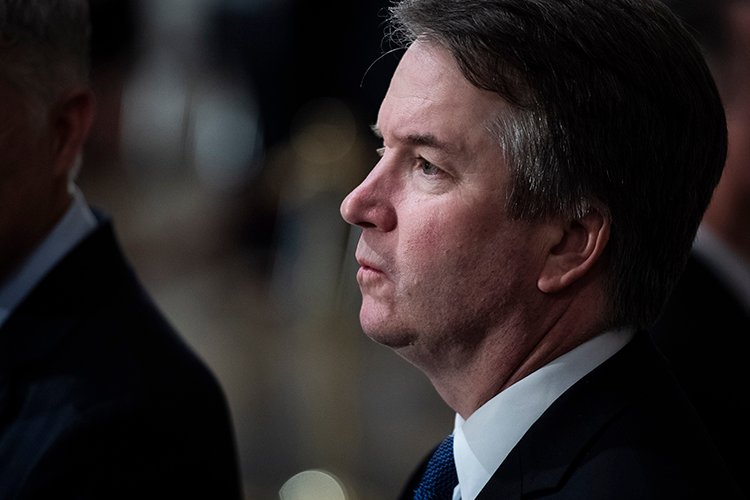U.S. Supreme Court
Kavanaugh cites precedent, ‘common sense’ in supporting SCOTUS order allowing immigration stops

Justice Brett Kavanaugh explained his agreement with a U.S. Supreme Court stay on Monday that allowed the federal government to continue making immigration stops in the Los Angeles area based on factors that include apparent ethnicity and the type of work done. (Photo by Jabin Botsford/The Washington Post)
Justice Brett Kavanaugh explained his agreement with a U.S. Supreme Court stay on Monday that allowed the federal government to continue making immigration stops in the Los Angeles area based on factors that include apparent ethnicity and the type of work done.
In a concurrence, Kavanaugh said apparent ethnicity alone does not justify reasonable suspicion supporting an immigration stop, but it can be a relevant factor when combined with other factors.
The high court’s three liberal justices dissented.
The Supreme Court’s Monday order temporarily stayed a federal judge’s decision that barred U.S. Immigration and Customs Enforcement from making investigative stops based on four factors, alone or combined. They are:
- Presence at particular locations, such as car washes, day laborer pickup sites and agricultural sites
- The type of work that a person does
- Speaking Spanish or speaking English with an accent
- Apparent race or ethnicity
Kavanaugh said reasonable suspicion is based on the totality of the circumstances. In the case before the Supreme Court, the circumstances include the “extremely high number and percentage” of people in the Los Angeles area who are in the country illegally and the fact that those people often work in jobs that don’t require paperwork, such as day labor, landscaping, agriculture and construction.
“Under this court’s precedents, not to mention common sense, those circumstances taken together can constitute at least reasonable suspicion of illegal presence in the United States,” Kavanaugh wrote.
Kavanaugh said reasonable suspicion means only that immigration officers may make a brief stop to inquire about immigration status, and a person who is lawfully in the United States or is a U.S. citizen would be free to go after the “brief encounter.”
The raids in the Los Angeles area began in June, Justice Sonia Sotomayor wrote in her dissent, joined by Justice Elena Kagan and Justice Ketanji Brown Jackson.
“During the raids, teams of armed and masked agents pulled up to car washes, tow yards, farms and parks and began seizing individuals on sight, often before asking a single question,” Sotomayor said. “Instead of allowing the district court to consider these troubling allegations in the normal course, a majority of this court decides to take the once-extraordinary step of staying the district court’s order. That decision is yet another grave misuse of our emergency docket.”
The case is Noem v. Vasquez Perdomo.
Publications with coverage include Politico, SCOTUSblog and the New York Times.
See also:
Did Trump violate law by deploying National Guard troops? Commentators see issues as California sues
Write a letter to the editor, share a story tip or update, or report an error.

